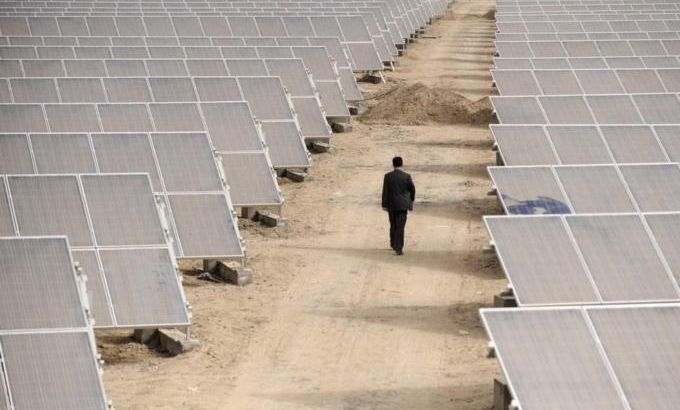China premier visits Germany amid trade spat
China enters informal talks with EU hoping to ease tensions on charges of telecom market and solar panel pricing.

Chinese Premier Li Keqiang has met with German Chancellor Angela Merkel amid a looming trade spat between Asia’s economic giant and the European Union.
The leaders were expected to discuss a mix of issues on Sunday, but the trade tensions will remain a dominant theme. China is expected to hold informal talks with the European Commission on Monday in a bid to defuse a trade row over solar panels and wireless equipment.
Keep reading
list of 4 itemsTurtles swimming to extinction in Malaysia as male hatchlings feel heat
Could shipping containers be the answer to Ghana’s housing crisis?
Thousands protest against over-tourism in Spain’s Canary Islands
|
|
| Al Jazeera’s Nick Spicer explains China and EU tensions |
The European Union accuses China of pricing its solar panels and mobile telecom devices too cheaply and “dumping” them in Europe to corner the market. It plans to impose duties on Chinese panel makers .
China denies the allegations and Premier Li Keqiang, who is touring Europe this week said the EU plans would “harm others without benefiting oneself”.
China’s Vice Commerce minister Zhong Shan will meet EU Trade Commissioner Karel De Gucht in Brussels on Monday, China’s Ministry of Commerce said on Sunday.
An EU spokesman confirmed the talks, but stressed they were informal. Trade disputes between China and Europe have multiplied as commercial ties have deepened. Eighteen of 31 trade investigations conducted by the European Union involves China.
The EU, the world’s largest economy, is China’s second-biggest business partner after the US, with a trade volume of about 430bn euros in 2012.
Repeated ‘dumping’ charges
The fall-out over solar panels, which came to a head this month when the European Commission announced plans to impose import duties averaging 47 percent on Chinese panel makers, is the largest to date.
The duties are expected to become EU law in early June. Formal discussions between China and the European Union towards reaching a negotiated settlement can only begin after that, the
Commission spokesman said.
Duties would affect 21 billion euros ($26.9 bn) worth of Chinese solar panels sold in Europe – sales that account for 60 percent of China’s total solar panel exports and 7 percent of the country’s total exports to the European Union.
Both sides have negotiated in the past but with no success. Beijing has condemned the proposed EU duties
and urged dialogue while tacitly threatening retaliation.
China rejects the EU’s price-dumping allegations, but the problem is no novelty for Beijing.
The US imposed five-year duties as high as 36 percent on China solar products in November.
Beijing is set to decide in June whether it wishes to levy its own duties on European, US and South Korean imports of solar-grade poly silicon, a raw material used in making solar panels.